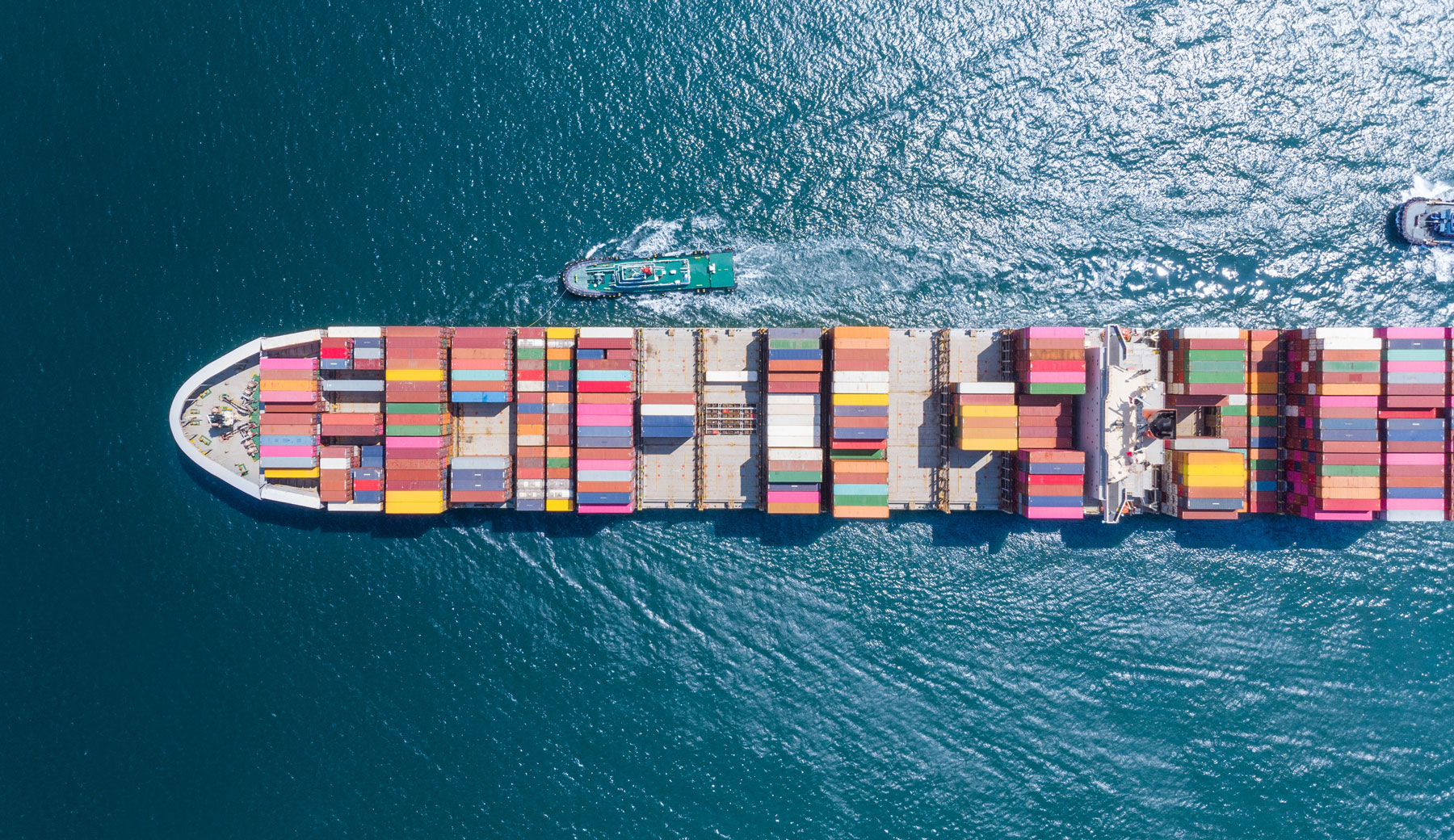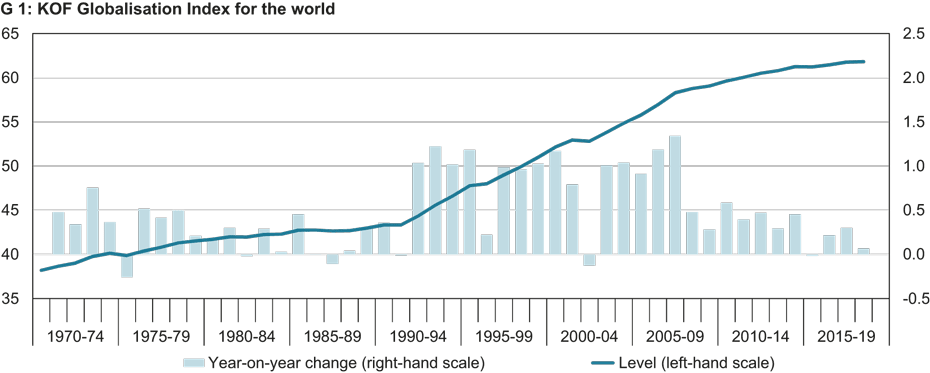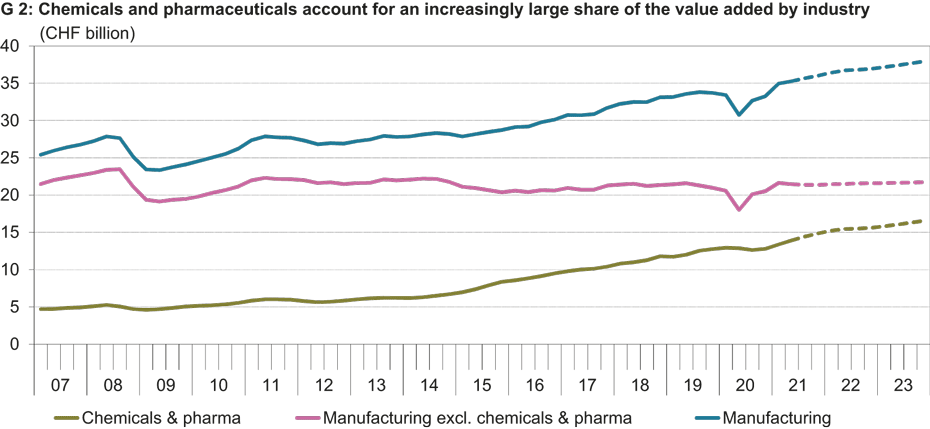"Globalisation is far from over"
- Globalisation
- Swiss Economy
- KOF Bulletin
KOF Director Jan-Egbert Sturm talks in an interview about the future of international trade, the lessons to be learned from the coronavirus crisis, and Switzerland’s competitiveness.

The KOF Globalisation Index rose steadily between 1970 and 2018 (see chart G 1). Since the financial crisis, however, the curve has flattened slightly. What is your forecast for globalisation during the COVID-19 crisis and the period thereafter?
We expect to see a dip for the coronavirus year of 2020 in particular. We also witnessed a decline in trade during the financial crisis. The key question is what happens afterwards. My forecast is that international trade will continue to flatline similarly to how it did before the COVID-19 crisis.

Will the coronavirus crisis spawn a new trend of regional production because we have learned during the crisis that international supply chains are fragile?
Having learned from the crisis, many companies now rely on several suppliers across different regions of the world instead of just one supplier from one region. But that does not necessarily reduce globalisation. I don’t think that the trend towards insourcing or greater regional production in one’s own country is strong. A local supplier can get into the same problems as your own company. You might even be better off with a supplier from another country. Basically, you cannot insure yourself against all risks. Price pressures will return after the pandemic. If you set up several supply chains, the costs will also be higher because you cannot simply choose the cheapest supplier. There are good reasons why we have been producing ‘just in time’. It is simply more efficient and you save on high warehousing costs.
The invention of the internet boosted globalisation in the 1990s. Will this positive interaction between digitalisation and globalisation continue?
Digitalisation has made the world a smaller place. The distances between trading partners have been reduced. This makes it easier to form networks. The invention of the internet provided considerable impetus for globalisation and this impetus will continue, especially as the potential offered by digitalisation has not yet been exhausted when I think of technology such as artificial intelligence. That’s why I believe that globalisation is far from over, because technology is strengthening globalisation.
China has performed extremely well economically in recent decades – thanks in part to globalisation. Do you see any other countries with similar growth potential?
That is difficult to predict. But you can see that, thanks to its successful economic development, China has now become too expensive as a production location in some respects, so production is being outsourced to countries such as Thailand, Vietnam and Malaysia. If these countries in turn become too expensive one day, other economies where labour is still cheap as a factor of production will benefit. And Africa immediately comes to mind here. But when and to what extent this process will take place is hard to predict.
Although Switzerland is a small country, it has produced multinationals such as Nestlé, Roche and Novartis. Is it true to say that Switzerland has benefited more from globalisation than almost any other country?
The smaller a country is, the more important international interconnectedness is. This applies to both the economic and political spheres. Switzerland has benefited enormously from globalisation in the past and will continue to do so in the future.
Nevertheless, globalisation also produces losers. How can this problem be addressed?
There are winners and losers from any structural change. That is the nature of the beast. On the whole, however, globalisation increases a society’s welfare. That is the consensus view within economics. But, of course, there are always domestic industries that are no longer competitive because of foreign competition. That can be quite painful for those affected.
How do you currently see the relationship between Switzerland and the EU following the failure of negotiations on the framework agreement?
Switzerland relies on cooperation with its most important trading partners. And the European Union is Switzerland’s most important trading partner. I therefore hope that there will be a further attempt to negotiate the framework agreement.
Are we already feeling the adverse effects of the failed negotiations on the framework agreement?
Switzerland has always played an important role in European research projects in the field of science. Unfortunately, the failure of the framework agreement has left Switzerland on the sidelines of some projects.
How is Switzerland as a business location positioned for international competition?
Switzerland is very well positioned. The pharmaceutical sector in particular is currently enjoying strong growth momentum – thanks in part to its involvement in the development and production of vaccines (see chart G 2). However, Switzerland must be careful not to rest on its laurels. The country has always found ways to reposition itself successfully in recent decades. It is important to maintain this ambition and to create the institutional framework that will allow Swiss companies to keep reinventing themselves and adapting to the needs of the global market.

- A recording of Jan-Egbert Sturm’s lecture on ‘Coronavirus and the consequences: the end of globalisation?’ can be found external page here.
- An interactive world map of the KOF Globalisation Index can be found here.
- A press release on the latest KOF Globalisation Index data for 2019 is available here.
Contacts
Director of KOF Swiss Economic Institute
Professur f. Wirtschaftsforschung
Leonhardstrasse 21
8092
Zürich
Switzerland
KOF Bereich Zentrale Dienste
Leonhardstrasse 21
8092
Zürich
Switzerland